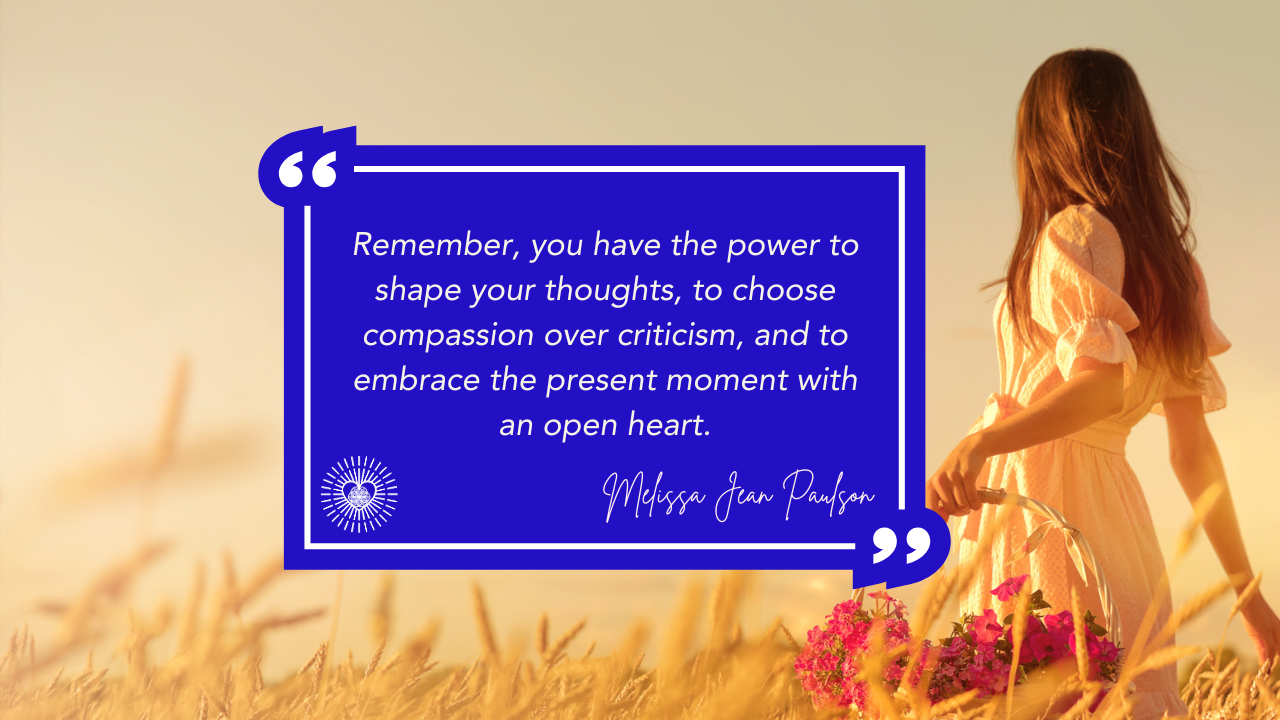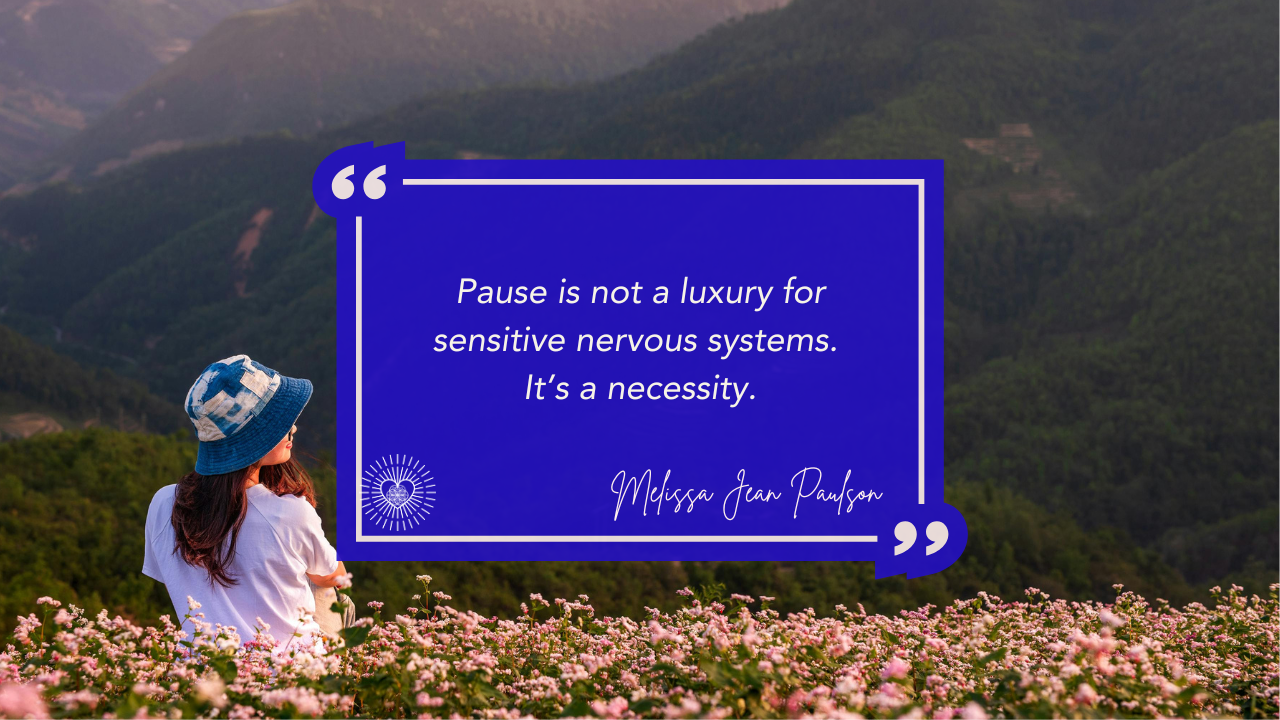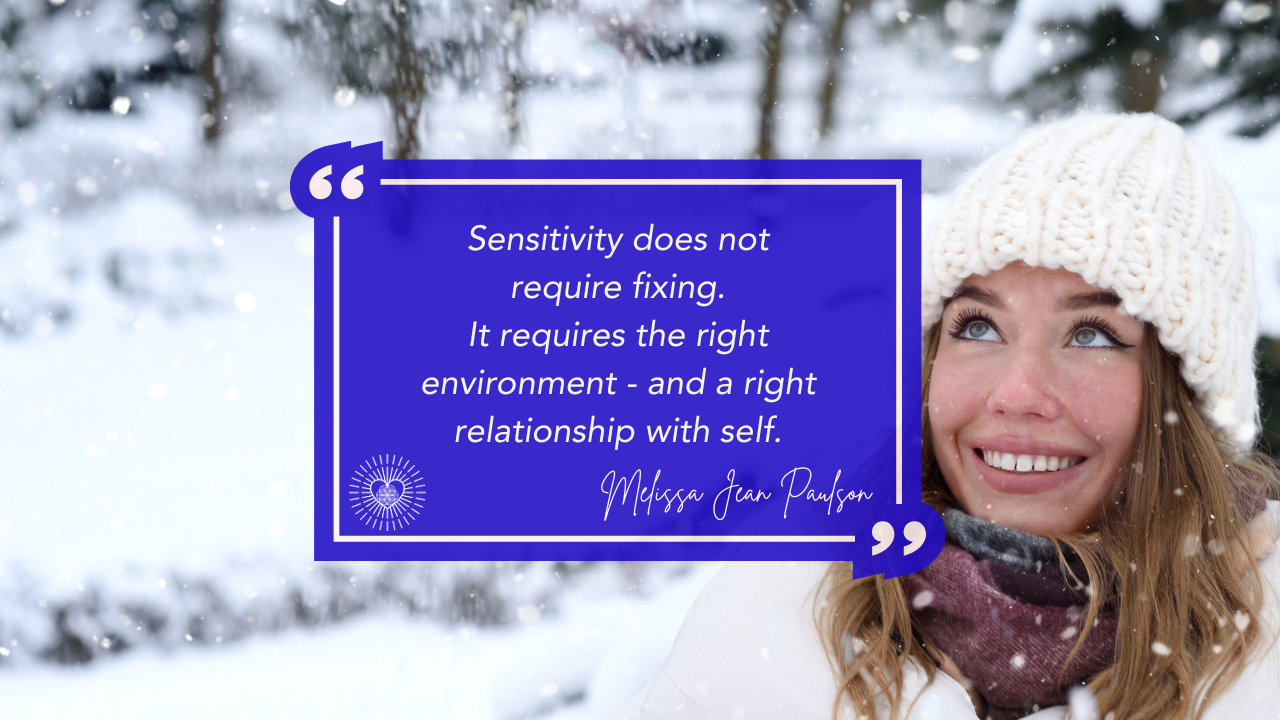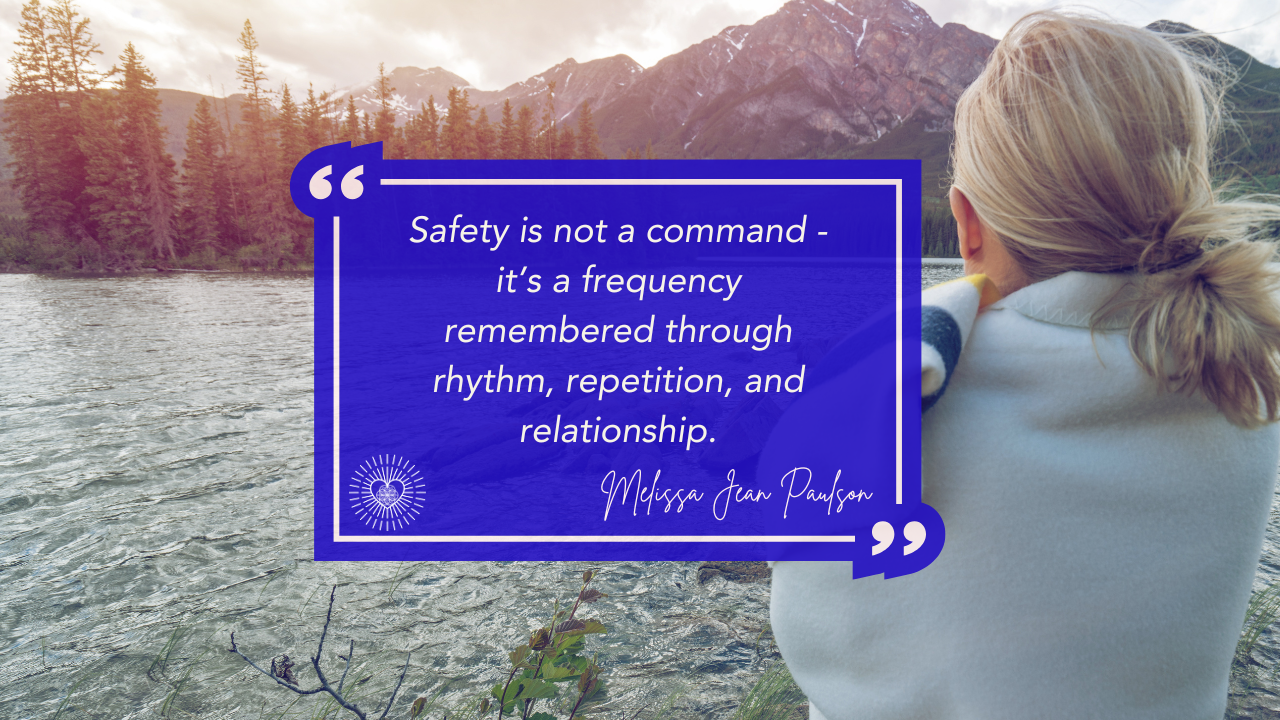Highly Sensitive Series (Part 3 of 9): Breaking the Cycle of Repetitive Thoughts (Mind Series 3 of 3)
Nov 01, 2024
Welcome to this third part of the Mind Series in the journey of embracing your highly sensitive self. Over the past two articles, we’ve explored the depths of your inner world, learning how to understand and nurture your sensitive mind and unravel the limiting beliefs that may have been holding you back. Now, as we close this chapter, we turn our focus to a challenge that many highly sensitive women face: the cycle of repetitive thoughts.
Have you ever found yourself caught in a loop of overthinking, replaying conversations, or worrying about the future? You’re not alone. For highly sensitive individuals, repetitive thought patterns are a common challenge and it’s a reflection of your deep processing abilities. While this trait allows you to gain profound insights, it can also lead to rumination and mental exhaustion if not managed with care.
Today, we’ll gently explore how to break free from these repetitive thought patterns, allowing you to find peace and clarity in your sensitive mind.
Understanding Rumination & Repetitive Thoughts
Repetitive thoughts, also referred to as rumination, often arise from your mind’s natural tendency to process information deeply. You might replay conversations, analyze past decisions, or worry about potential outcomes in an effort to understand and find solutions. While this deep thinking can be beneficial in moderation, it can become overwhelming when it spins into a cycle of worry and self-doubt.
As a highly sensitive woman, your heightened emotional responsivity can make these thoughts feel even more intense. What starts as a simple reflection can quickly turn into a loop of negative thinking, leaving you feeling stuck and anxious. Rumination can lead to heightened stress, self-doubt, and anxiety, making it difficult to find emotional peace.
But remember, your mind’s ability to process deeply is a gift - it’s what allows you to connect with others, notice subtle details, and make thoughtful decisions. The key is learning how to manage this gift in a way that serves you, rather than overwhelms you.
Common Triggers for Overthinking
The first step in breaking the cycle of repetitive thoughts is recognizing why it happens and recognizing when you're in the midst of it. Here are some common triggers for highly sensitive women:
- Overstimulation: When your environment is too loud, chaotic, or demanding, it can lead to mental overload, triggering repetitive thoughts as your mind tries to process the excess information.
- Emotional Stress: Conflict, criticism, or emotional upheaval can cause your mind to dwell on negative thoughts, replaying events or conversations in an attempt to find resolution.
- Unresolved Beliefs: Limiting beliefs that we discussed in Part 2 can fuel repetitive thoughts, especially if those beliefs make you question your worth or abilities.
By identifying these triggers, you can begin to understand when and why your mind falls into these patterns, giving you the power to intervene before they take hold.
Practical Techniques to Break Free
Once you’ve recognized the triggers, the next step is to gently interrupt the cycle of repetitive thoughts. Here are some nurturing strategies to help you find peace in your mind:
1. Mindful Awareness: Practice bringing mindful awareness to your thoughts. When you notice yourself ruminating, gently acknowledge the thought without judgment. You might say to yourself, “I see that I’m thinking about this a lot,” and then, with kindness, redirect your attention to the present moment.
2. Grounding Techniques: Grounding yourself in the present can help break the cycle of repetitive thoughts. Try focusing on your breath, noticing the sensations in your body, or engaging in a sensory activity like walking barefoot on the grass. These practices can help you reconnect with the here and now, rather than getting lost in your thoughts.
3. Set Aside Worry Time: If certain thoughts continue to persist, consider setting aside a specific time each day to address them. For example, you might give yourself 15 minutes in the evening to reflect on any worries or concerns. This allows you to acknowledge your thoughts without letting them take over your day.
4. Self-Compassion: Treat yourself with the same kindness you would offer a dear friend. When you find yourself caught in a cycle of overthinking, remind yourself that it’s okay to feel this way and that you’re doing your best. Self-compassion can help soothe the anxiety that often accompanies repetitive thoughts.
5. Create a Peaceful Environment: Your surroundings play a significant role in how you feel mentally. Create a space that feels calm and nurturing - whether it’s decluttering your home, playing soothing music, or spending time in nature. A peaceful environment can help calm your mind and reduce the tendency to overthink.
Embracing the Power of Positive Thoughts
As you work on breaking the cycle of repetitive thoughts, it’s also important to cultivate positive thinking patterns. Here are some ways to nurture a more positive mindset:
- Gratitude Practice: Each day, take a moment to reflect on what you’re grateful for. This simple practice can shift your focus from worry to appreciation, helping you cultivate a more positive outlook.
- Positive Affirmations: Replace limiting beliefs with positive affirmations that align with your true self. For example, instead of thinking, “I’m not good enough,” try, “I am worthy of love and respect.”
- Celebrate Small Wins: Acknowledge and celebrate your progress, no matter how small. Each step forward is a victory, and recognizing these moments can help reinforce positive thinking.
Looking Ahead: Moving from Mind to Body
With this final installment of our Mind Series, you’ve gained tools and insights to nurture your sensitive mind, unravel limiting beliefs, and break free from the cycle of repetitive thoughts.
Next, we’ll shift our focus to caring for your sensitive body in the Body Series, exploring how to manage environmental toxins, nutrition, and the impact of a busy lifestyle on your well-being.
Remember, your mind is your ally, not your enemy. With the right tools, you can break free from overthinking and step into a space of clarity and peace. This journey is about embracing your sensitivity in all its forms - mind, body, and spirit. Each step you take is a step toward greater peace, self-compassion, and empowerment.
Conclusion: Embrace a Calmer Mind
Your mind is a beautiful, complex, and sensitive place. Yet, repetitive thought patterns are a common challenge for highly sensitive women, but they don’t have to control your life. By becoming aware of these patterns and practicing mindful strategies, you can break the cycle and find peace within your mind. Remember, you have the power to shape your thoughts, to choose compassion over criticism, and to embrace the present moment with an open heart.
I’m honored to have shared this journey with you through the Mind Series. Stay tuned as we continue our exploration into caring for your sensitive body in the next part of our Highly Sensitive Series.
As you work through breaking the cycle of repetitive thoughts, I encourage you to reflect on your own experiences:
- How does overthinking impact your daily life?
References:
Pluess, M., & Belsky, J. (2013). Vantage sensitivity: Individual differences in response to positive experiences. Psychological Bulletin, 139(4), 901-916.
Aron, E. N. (2016). The Highly Sensitive Person: How to Thrive When the World Overwhelms You. New York: Broadway Books.
Kabat-Zinn, J. (1990). Full Catastrophe Living: Using the Wisdom of Your Body and Mind to Face Stress, Pain, and Illness. New York: Bantam Dell.
Nolen-Hoeksema, S., Wisco, B. E., & Lyubomirsky, S. (2008). Rethinking rumination. Perspectives on Psychological Science, 3(5), 400-424.
This blog is part of The Re-Aligned Journey™ - A Spiral of Healing and Remembrance for sensitive women returning to right relationship with mind, body, and soul.
Join the Rise & Realign Lunar Letter
A weekly reflection of moon, mind, and body - guiding sensitive women to rise, reclaim, and remember.
Your privacy is sacred. We will never share or sell your information.






